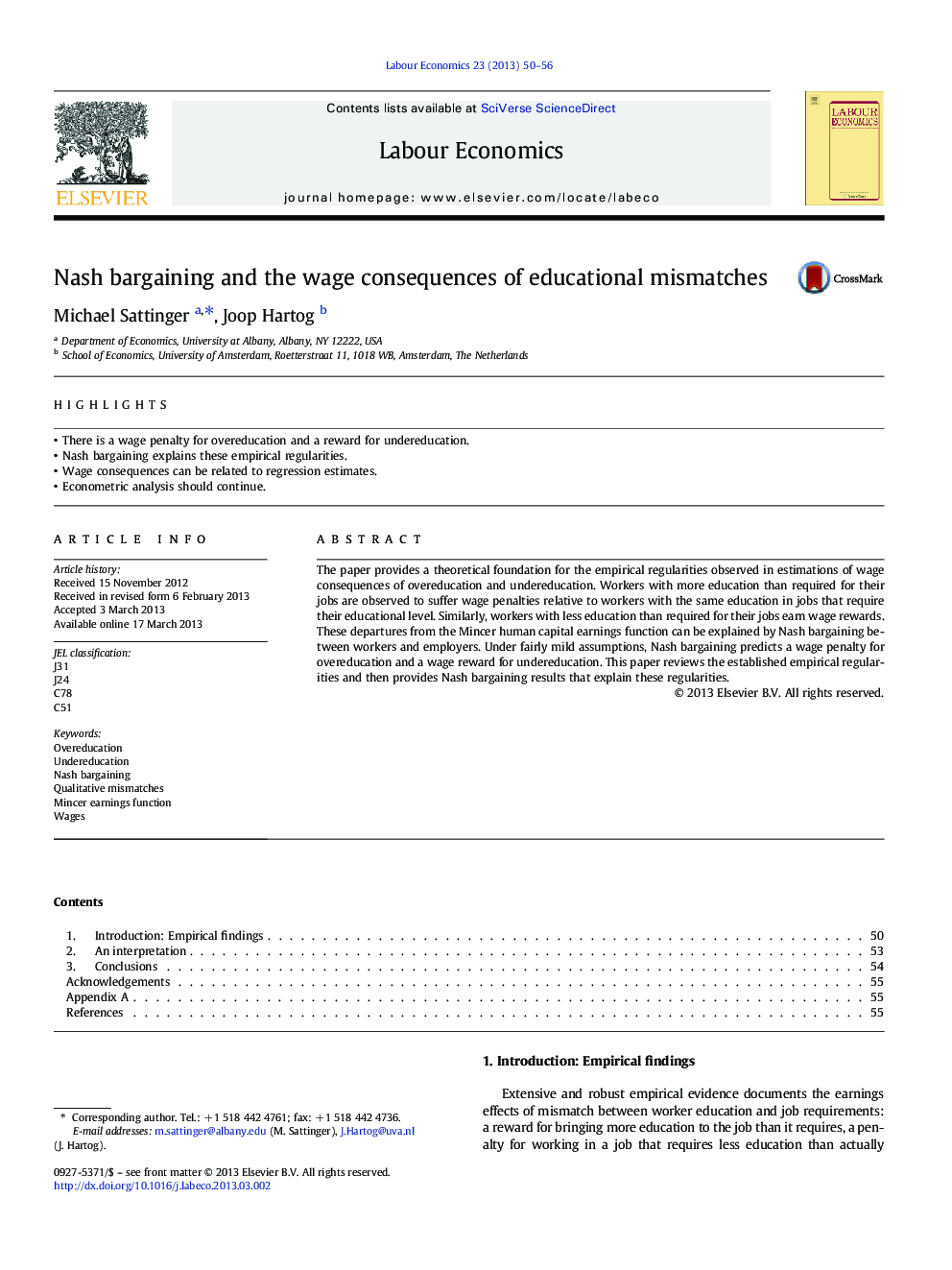| Article ID | Journal | Published Year | Pages | File Type |
|---|---|---|---|---|
| 972389 | Labour Economics | 2013 | 7 Pages |
•There is a wage penalty for overeducation and a reward for undereducation.•Nash bargaining explains these empirical regularities.•Wage consequences can be related to regression estimates.•Econometric analysis should continue.
The paper provides a theoretical foundation for the empirical regularities observed in estimations of wage consequences of overeducation and undereducation. Workers with more education than required for their jobs are observed to suffer wage penalties relative to workers with the same education in jobs that require their educational level. Similarly, workers with less education than required for their jobs earn wage rewards. These departures from the Mincer human capital earnings function can be explained by Nash bargaining between workers and employers. Under fairly mild assumptions, Nash bargaining predicts a wage penalty for overeducation and a wage reward for undereducation. This paper reviews the established empirical regularities and then provides Nash bargaining results that explain these regularities.
